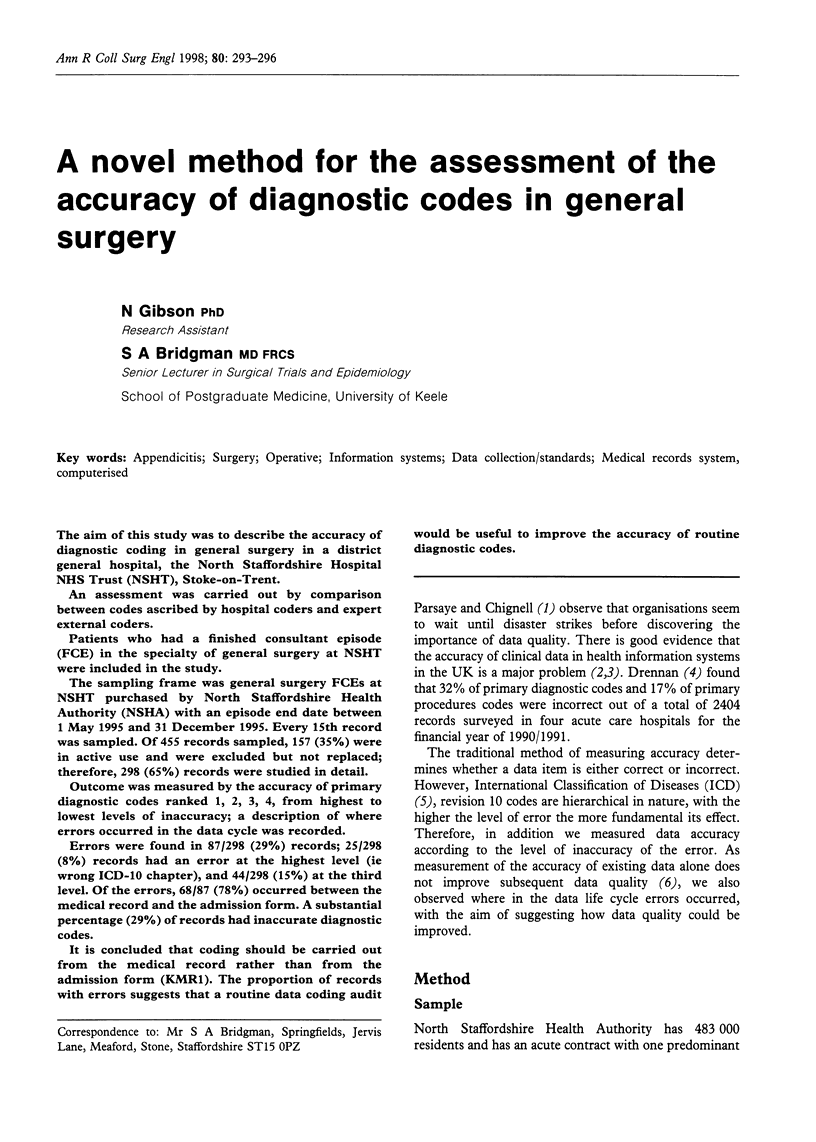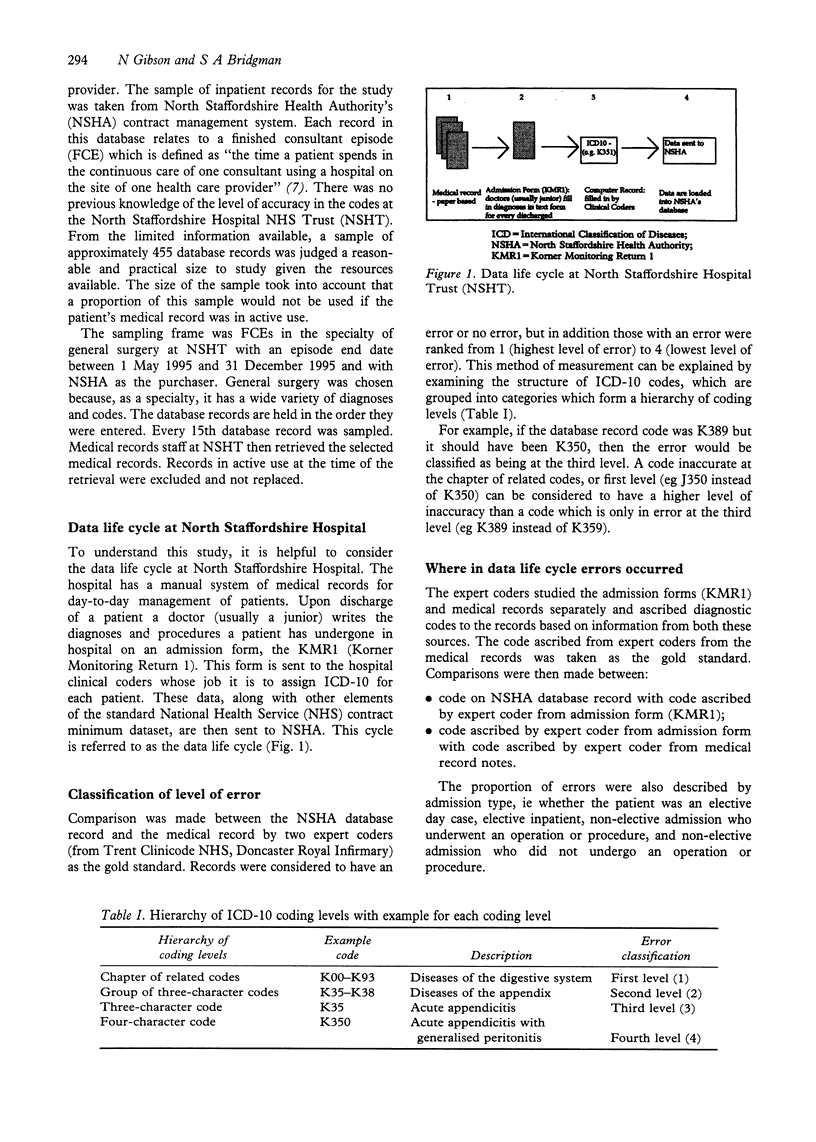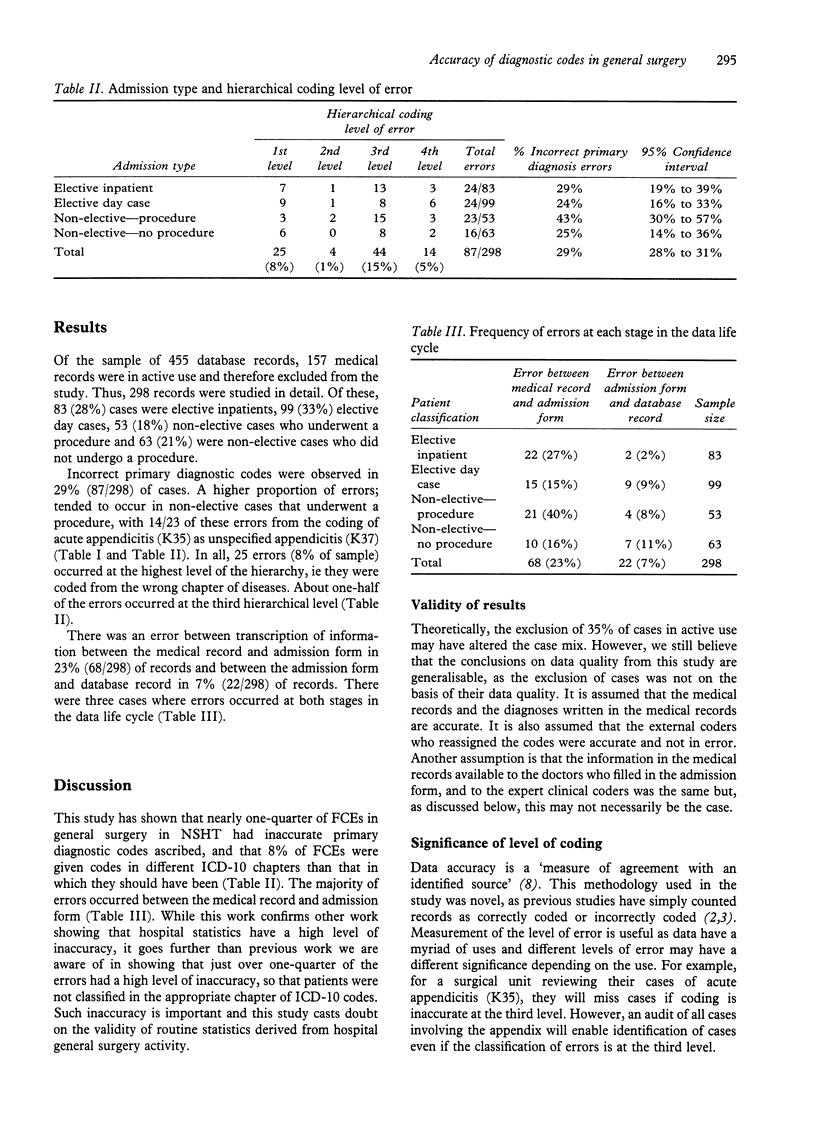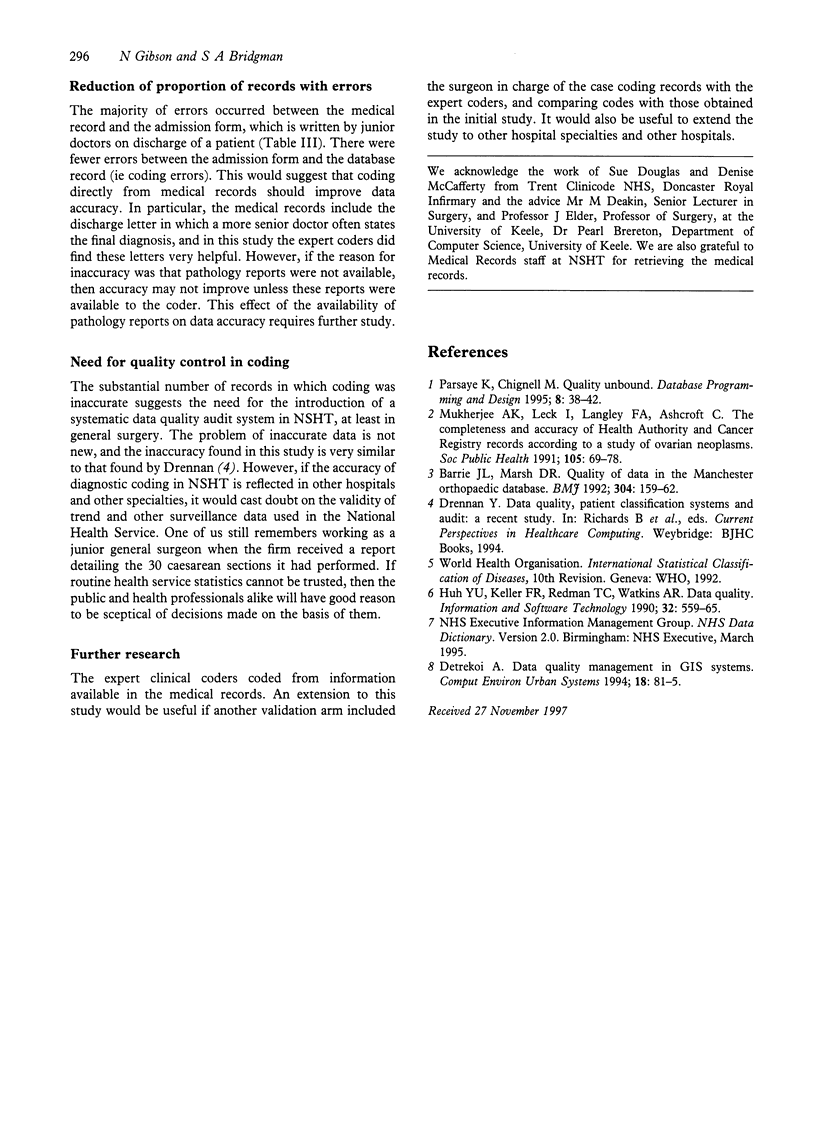Abstract
The aim of this study was to describe the accuracy of diagnostic coding in general surgery in a district general hospital, the North Staffordshire Hospital NHS Trust (NSHT), Stoke-on-Trent. An assessment was carried out by comparison between codes ascribed by hospital coders and expert external coders. Patients who had a finished consultant episode (FCE) in the specialty of general surgery at NSHT were included in the study. The sampling frame was general surgery FCEs at NSHT purchased by North Staffordshire Health Authority (NSHA) with an episode end date between 1 May 1995 and 31 December 1995. Every 15th record was sampled. Of 455 records sampled, 157 (35%) were in active use and were excluded but not replaced; therefore, 298 (65%) records were studied in detail. Outcome was measured by the accuracy of primary diagnostic codes ranked 1, 2, 3, 4, from highest to lowest levels of inaccuracy; a description of where errors occurred in the data cycle was recorded. Errors were found in 87/298 (29%) records; 25/298 (8%) records had an error at the highest level (i.e. wrong ICD-10 chapter), and 44/298 (15%) at the third level. Of the errors, 68/87 (78%) occurred between the medical record and the admission form. A substantial percentage (29%) of records had inaccurate diagnostic codes. It is concluded that coding should be carried out from the medical record rather than from the admission form (KMR1). The proportion of records with errors suggests that a routine data coding audit would be useful to improve the accuracy of routine diagnostic codes.
Full text
PDF



Selected References
These references are in PubMed. This may not be the complete list of references from this article.
- Barrie J. L., Marsh D. R. Quality of data in the Manchester orthopaedic database. BMJ. 1992 Jan 18;304(6820):159–162. doi: 10.1136/bmj.304.6820.159. [DOI] [PMC free article] [PubMed] [Google Scholar]
- Mukherjee A. K., Leck I., Langley F. A., Ashcroft C. The completeness and accuracy of health authority and cancer registry records according to a study of ovarian neoplasms. Public Health. 1991 Jan;105(1):69–78. doi: 10.1016/s0033-3506(05)80319-1. [DOI] [PubMed] [Google Scholar]


